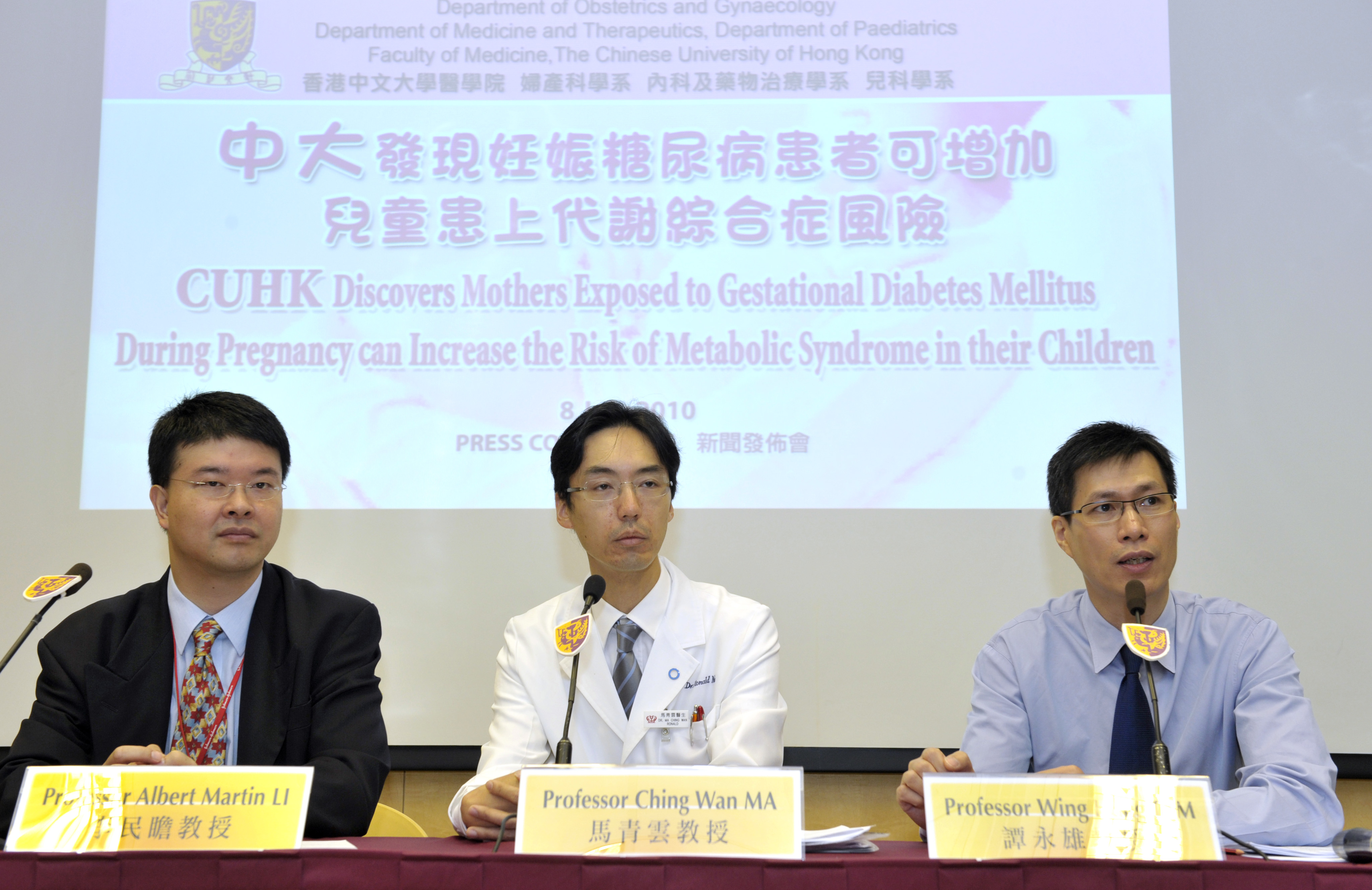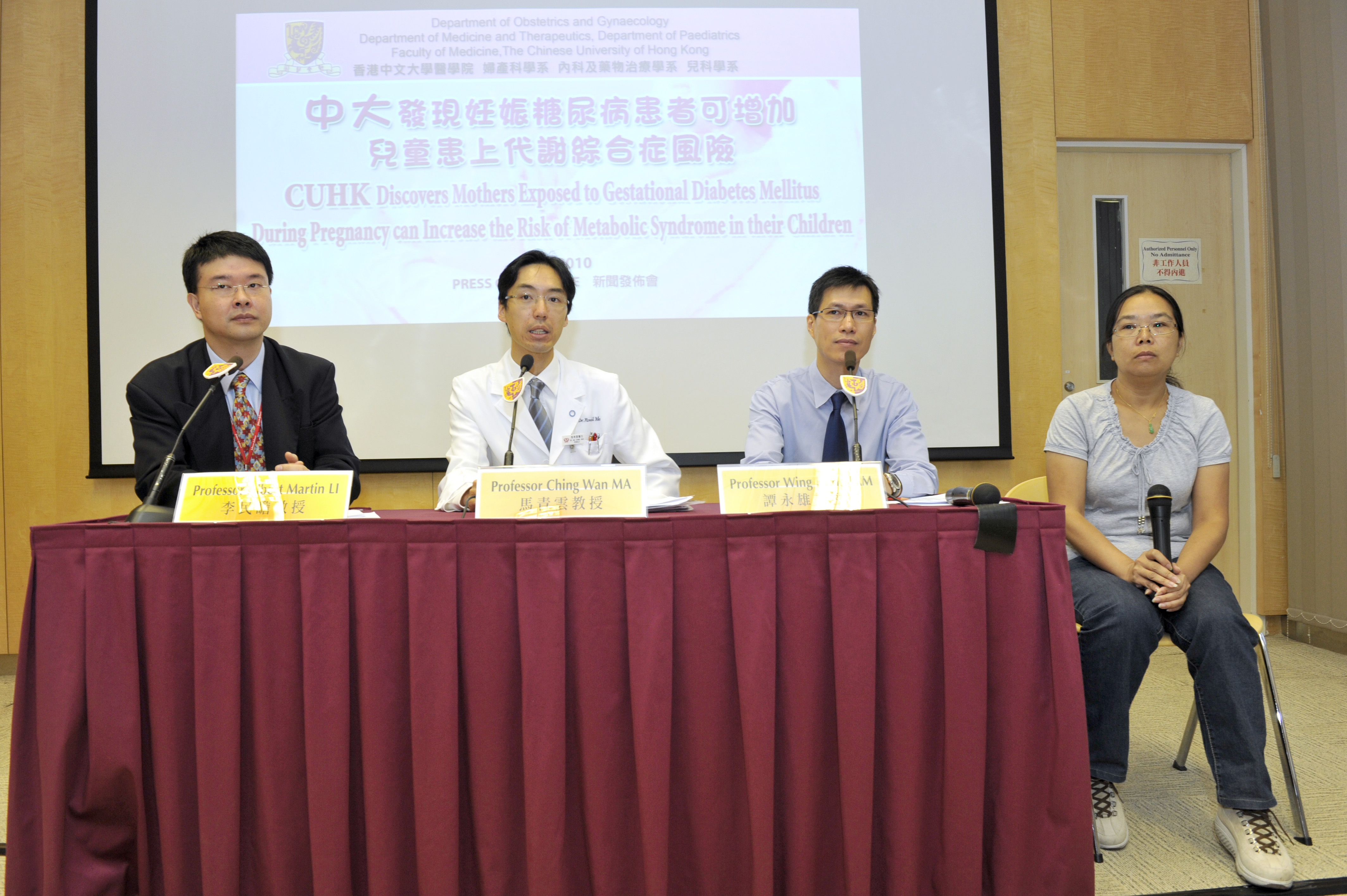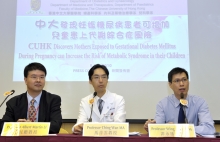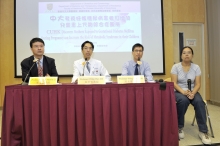CUHK
News Centre
CUHK Discovers Mothers Exposed to Gestational Diabetes Mellitus During Pregnancy can Increase the Risk of Metabolic Syndrome in their Children
Pregnancy is often associated with a physiological increase in blood glucose levels as a way to provide nutrient to the developing fetus. Pregnancy can be complicated by a transient diabetic state, known as Gestational Diabetes Mellitus (GDM), when women develop abnormally high glucose levels during pregnancy.
Researchers from the Department of Medicine and Therapeutics, and Department of Obstetrics and Gynaecology at The Chinese University of Hong Kong (CUHK) have followed-up a group of 203 women who delivered at the early 1990’s, as well as 164 of their children during 2001-2008. From the 15-year follow-up study, the researchers found that children born to women with GDM during pregnancy have increased health risks which are already apparent in their early childhood, such as a higher blood pressure and abnormal lipid profile at the age of 8. The finding was published in a leading paediatric journal, Pediatrics, in December 2008.
Recently, they also reported that these adverse metabolic consequences persist into adolescence. The risk of obesity and metabolic syndrome at 15 years of age were increased by 11 and 18 times respectively when there is in-utero hyperinsulinaemia (umbilical cord C-peptide level > 1.2 nmol/L) at pregnancy. The above result was also published in the leading diabetes journal, Diabetes Care, in June 2010.
Prof. Albert Martin Li, Professor of the Department of Paediatrics, CUHK remarked, ‘Our findings suggest that exposure to GDM can have long-term harmful effects on the future risk of metabolic diseases and obesity for the child. While more studies are needed to clarify how exposure to high glucose can lead to these effects, our results strongly suggest that women need to be screened for GDM during pregnancy, and women who are found to have GDM should be treated in order to minimize the long-term risks of diabetes during pregnancy.’
Prof. Ronald Ma, Associate Professor of the Department of Medicine and Therapeutics, CUHK, remarked, ‘In this long-term follow-up study, women who have history of GDM have a 50% chance of having abnormal glucose tolerance and a 25% chance of developing Diabetes Mellitus (DM) 15 years later. Majority of the women do not know their diabetic status prior to our follow-up study. Moreover, in this cohort of relatively young subjects at their early 40’s, women with history of GDM also had a 3-fold increase in hypertension’. The findings emphasized the importance of regular glycaemic assessment in women who have been diagnosed with GDM in pregnancy.
‘Our experience for the last 20 years suggests that around 15% of the pregnant women in Hong Kong have GDM during pregnancy, which is known to lead to increased risk of macrosomia, as well as difficult and operative vaginal delivery. In addition, it is increasingly recognized that GDM can lead to poor pregnancy outcome, including increased risk of neonatal trauma and nerve injury at birth,’ remarked Prof. Tam Wing-hung, Associate Professor of the Department of Obstetrics and Gynaecology, CUHK and the principal investigator of the study.
‘With increased awareness of the harmful effects of elevated glucose during pregnancy, the threshold for classifying someone as GDM has been recently re-defined in March 2010 (i.e. fasting plasma glucose ≥ 5.1mmol/L, or 1 hour plasma glucose ≥ 10mmol/L, or 2 hour plasma glucose PG ≥ 8.5mmol/L in a 75g oral glucose tolerance test)by the International Association of Diabetes and Pregnancy Study Groups Consensus Panel based on the result of a multi-centre study named ‘Hyperglycemia and Adverse Pregnancy Outcome (HAPO) study’. CUHK is one of the 15 field centres of the HAPO study, our research team has been carrying out another follow-up study on the mothers and children of the HAPO study group since early 2009,’ added Professor Tam.
CUHK Faculty of Medicine suggests that women should undergo the screening of GDM during pregnancy and receive proper treatment once diagnosed. GDM does not only affect pregnancy outcomes but also the offspring from childhood to adolescence. Mothers should also have regular glycaemic assessment after their pregnancy if they had been diagnosed with GDM in order to detect DM as soon as possible.
(From left) Professor Albert Martin Man Chim LI, Professor, Department of Paediatrics, CUHK; Professor Ronald Ching Wan MA, Associate Professor, Department of Medicine and Therapeutics, CUHK and Professor Wing Hung TAM, Associate Professor, Department of Obstetrics and Gynaecology, CUHK





